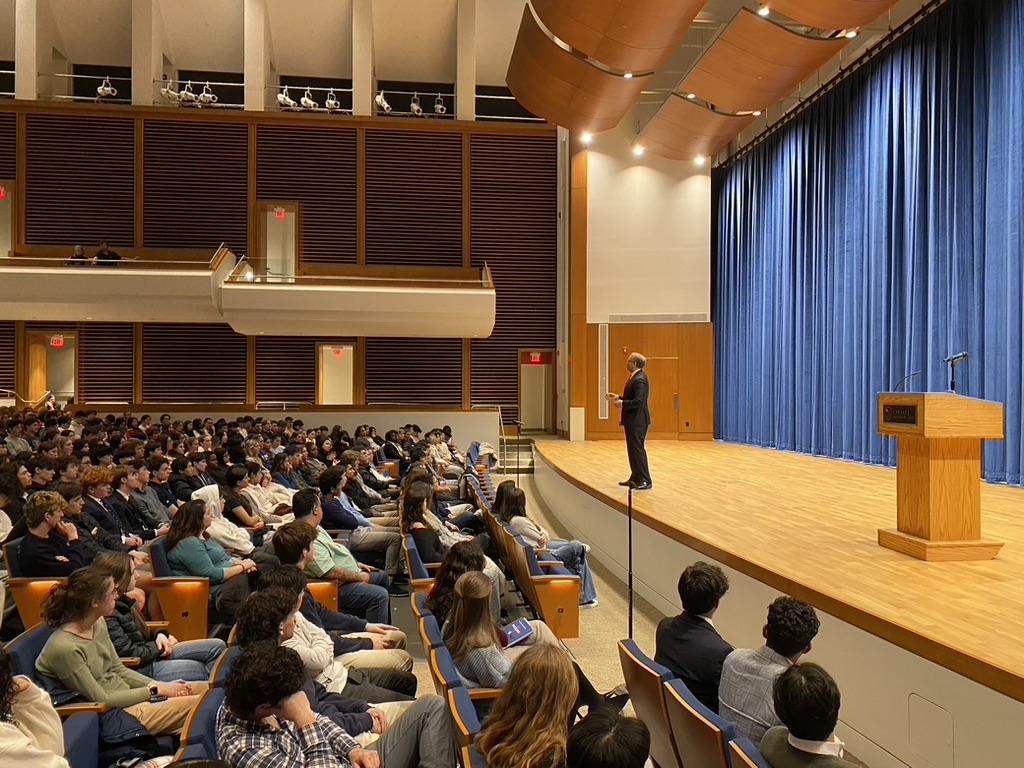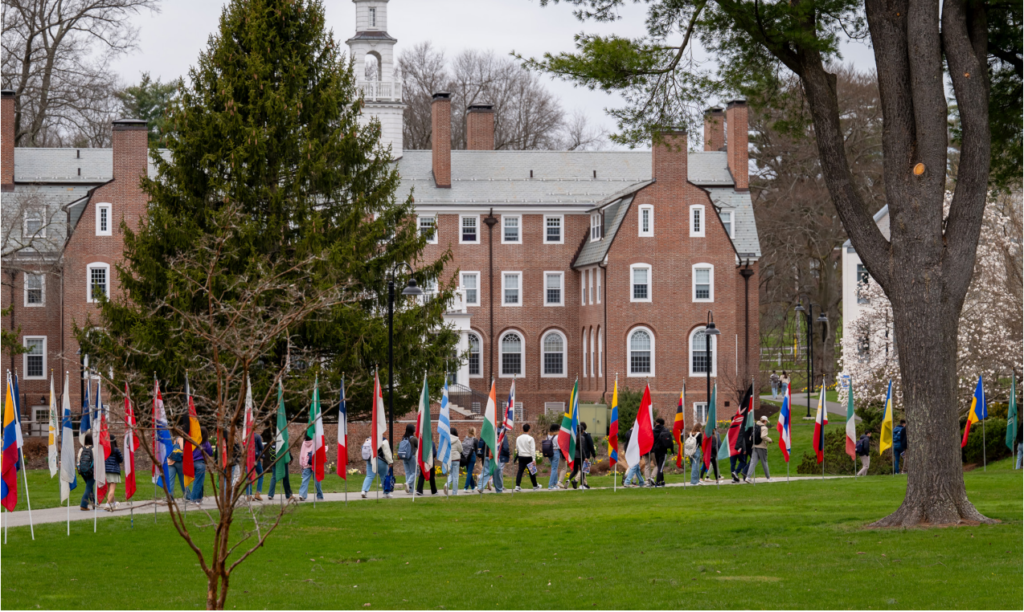
Photo courtesy of Mr. Jonas Akins
Dr. Mukunda speaks to students about leadership and character.
By Chelsea Branch ’25
On March 19, Choate welcomed Professor Gautam Mukunda to the Colony Hall stage for the annual Adlai Stevenson II ’18 Lecture. Students enrolled in history, economics, and political science courses were required to attend his presentation on leadership and power.
Dr. Mukunda has amassed accomplishments in several disciplines, including economics, teaching, literature, and political science. However, it was the professor’s recent book, Picking Presidents: How To Make The Most Consequential Decision In The World, that prompted the Stevenson Lecture Series’s Coordinator and Humanities teacher Mr. Jonas Akins to choose Dr. Mukunda as this year’s presenter.
Mr. Akins and Dr. Mukunda attended Harvard College together and reunited this past summer by coincidence at a Choate-affiliated party. Mr. Akins remarked that Dr. Mukunda’s book was “directly relevant to this election year, and it’s also a book that we read in [Government and Politics II].”
Dr. Mukunda’s book reveals how leaders are filtered by the political system, and discusses the importance of electing officials who will enact meaningful change. Xiu Lim ’25, a student who was in Government and Politics II during the winter term, said that his book featured “an absolutely fascinating central theory of leader-filtration, which seamlessly combines learnings from both political science and psychology.”
Dr. Mukunda’s speech was an extension of the concepts tackled in his book, and he presented his message in a manner that resonated well with high school students. He opened his lecture by painting a striking picture: on his way to Choate, he watched a homeless man ravage through trash cans for a meal. Minutes later, he found himself on Choate’s sprawling campus. This illustration of contrast challenged listeners to reflect on the bubble of privilege Choate students reside in. Dr. Mukunda explained that such stark disparity is a direct reflection of our elected leaders.
Mr. Akins walked away from Dr. Mukunda’s lecture questioning the concept of election. He shared, “I’ve been reflecting a lot on the process we use to identify leaders, both in terms of a national perspective — how do we pick a president? What does our primary cycle look like? Is the Electoral College a good idea? Those sorts of things, but also how do we identify leaders here on campus?”
The latter half of Dr. Mukunda’s speech focused on the effect of authority on character. Dr. Mukunda highlighted the statistic that only 10% of elected leaders become more altruistic, honest, and empathetic after being given power. The other 90%, however, are more likely to steal, cheat, and lie. Dr. Mukunda explained that it wasn’t that power corrupted the human character, but that power unveils who you are at your core, stripping away the need to pretend.
The Stevenson Lecture Series exists to inform and empower Choate students, and that was exactly what Mr. Akins hoped listeners gained from Dr. Mukunda’s presentation. “What [Dr. Mukunda] talked about in terms of what power does to people, whether it reveals character, whether it changes character — I hope that students who might not yet be in a position of responsibility are able to think about those questions before they get into a captain position or a prefect position or a cabinet for one of our clubs,” he said.
Ana Bury ’25 also has plans to integrate Dr. Makunda’s wisdom into her Choate experience. To live by Dr. Makunda’s idea of a good leader, Bury emphasized that “when we receive power, knowing that you received that power through other people, because of other people, and to help other people — I feel [that] should remain at the forefront [of our minds].”


